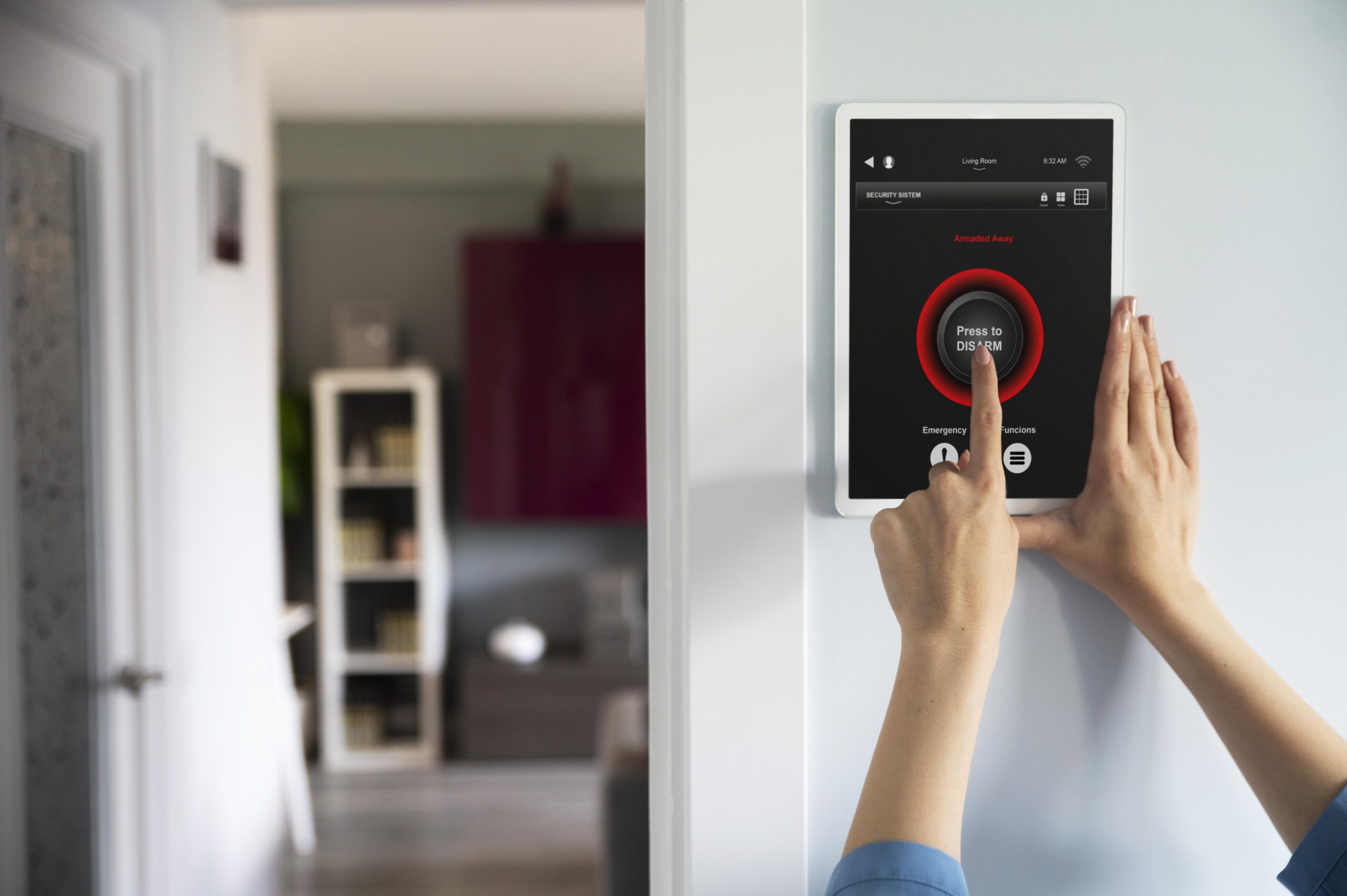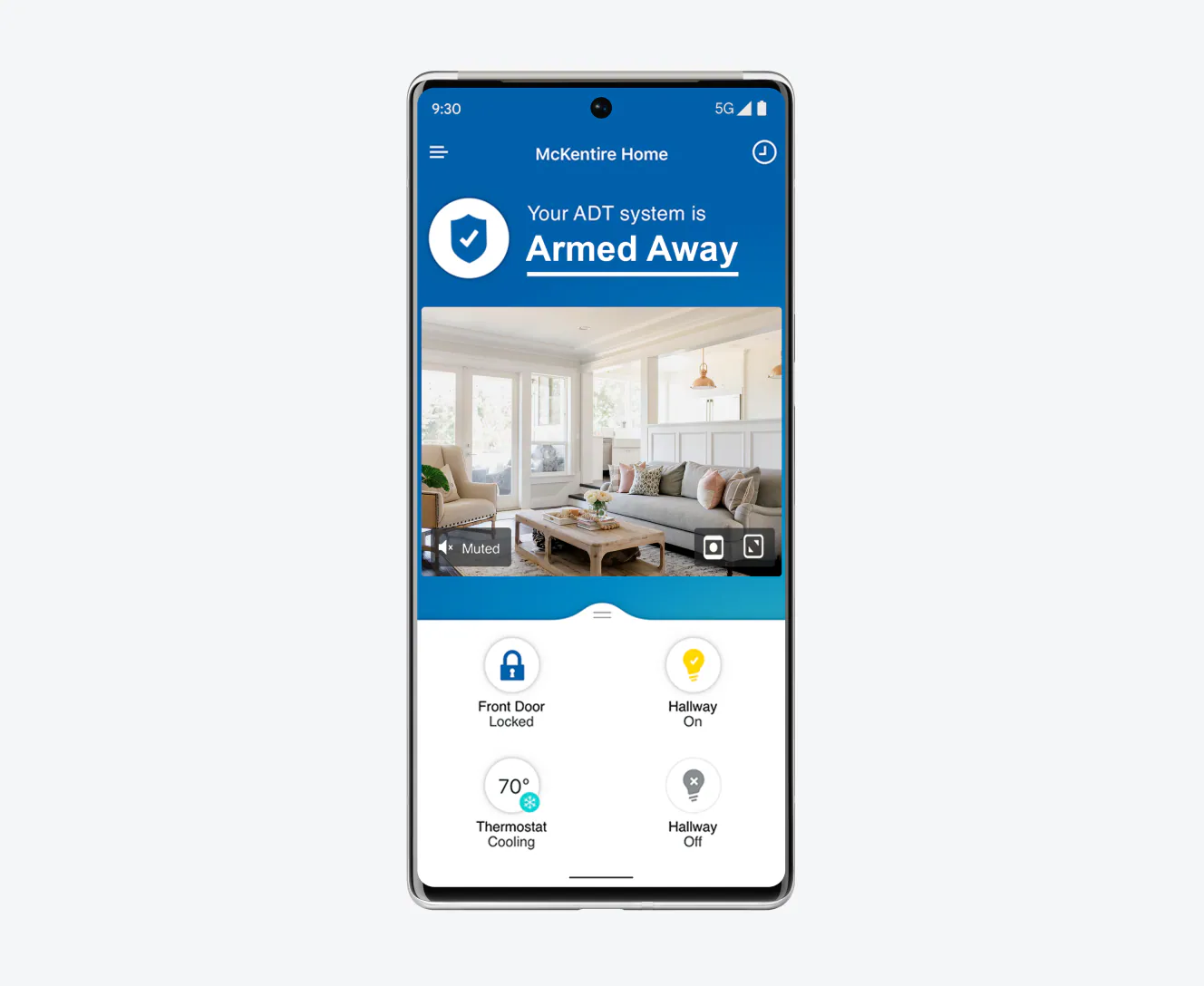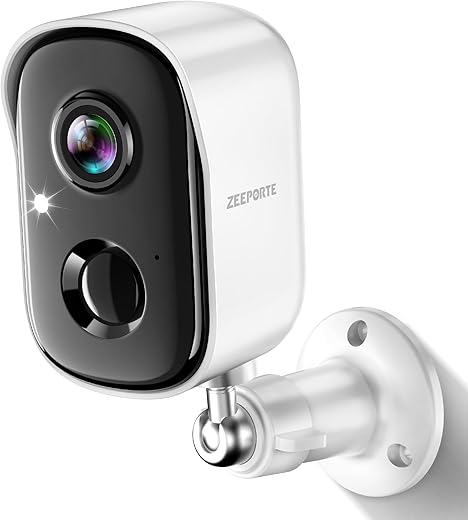Protect Your Peace of Mind with Safe Home Security Systems: How to Keep Your Loved Ones and Belongings Safe
Are you concerned about the safety of your loved ones and belongings? Protecting your peace of mind is of utmost importance, and one of the best ways to achieve this is by investing in a safe home security system. In today’s world, it’s essential to take proactive measures to keep your home secure.
With the advancements in technology, home security systems have become more advanced and reliable than ever before. From surveillance cameras to smart locks and alarm systems, these state-of-the-art solutions offer comprehensive protection against potential threats. Whether you’re at home or away, you can have peace of mind knowing that your property is being monitored and safeguarded.
Not only do home security systems act as a deterrent to potential burglars, but they also provide quick response in case of emergencies such as fires or medical situations. The ability to remotely monitor and control your home’s security features adds an extra layer of convenience and control.
Don’t wait until it’s too late. Discover how to keep your loved ones and belongings safe by investing in a reliable home security system. Let your home become a fortress of safety where you can relax and enjoy life without worry.
Read this: The Ultimate Guide to Finding the Best Smart Lock for Your Home
The Importance of Home Security
Home security is a fundamental aspect of modern living that should never be underestimated. In an era where crime rates can fluctuate and threats can arise unexpectedly, having robust security measures in place is essential for safeguarding both people and property. The emotional and psychological benefits of a secure home are invaluable, as they allow homeowners to live without the constant worry of potential intrusions or emergencies. Knowing that your loved ones are safe within the confines of your home creates a sense of tranquility that is hard to replicate.
In addition to personal safety, a good home security system can significantly reduce the likelihood of theft or property damage. Studies have shown that homes equipped with security systems are less likely to be targeted by burglars, serving as a powerful deterrent against criminal activity. The presence of surveillance cameras, alarm systems, and motion detectors not only helps to protect your belongings but also contributes to the overall safety of the neighborhood. When more homes prioritize security, the entire community benefits from a reduced crime rate.
Moreover, home security systems provide peace of mind when you’re away from your residence. Whether on vacation, at work, or simply out for the day, knowing that your home is being monitored allows you to focus on other aspects of life without distraction. Some security systems offer real-time alerts and remote access features, enabling homeowners to view live feeds from their cameras or receive notifications in case of unusual activity. This level of awareness empowers individuals to take immediate action when necessary, ensuring that their peace of mind is maintained no matter where they are.
Understanding Home Security Systems
Home security systems have evolved dramatically over the last few decades, transitioning from basic alarm setups to sophisticated integrated systems that offer a multitude of features. At their core, these systems are designed to detect unauthorized access to homes, alert homeowners to potential threats, and provide a means of protection against emergencies such as fires or medical incidents. Understanding how these systems operate is crucial for any homeowner looking to enhance their security measures.
Typically, a home security system consists of several components, including sensors, cameras, alarms, and control panels. Sensors are placed on doors and windows to detect when they are opened or tampered with, while cameras provide visual monitoring of the premises. Alarms serve as audible alerts when a breach is detected, notifying both the homeowner and, in some cases, local authorities. The control panel acts as the central hub for managing these components, allowing users to arm or disarm the system and customize settings according to their preferences.
One of the most significant advancements in home security systems is the integration of smart technology. Many modern systems can be connected to smartphones, tablets, or computers, allowing homeowners to monitor their property remotely. This connectivity not only enhances convenience but also provides greater control over security settings. Homeowners can receive instant alerts on their devices, view live video feeds, and even interact with visitors through doorbell cameras, all from the palm of their hand.
Types of Home Security Systems
When considering home security, it’s essential to understand the different types of systems available on the market. Each type caters to various needs, preferences, and budgets, allowing homeowners to select the one that best suits their requirements. The primary categories include monitored systems, unmonitored systems, wireless systems, and hardwired systems, each offering unique advantages and challenges.
Monitored security systems are professionally monitored by a security company, which means that they have personnel available 24/7 to respond to alerts. In the event of a security breach or emergency, the monitoring center can quickly dispatch local authorities to your location. Though these systems typically come with a monthly fee for monitoring services, many homeowners find the peace of mind they provide to be well worth the investment.
On the other hand, unmonitored systems are solely reliant on alarms and notifications sent directly to the homeowner. These systems can be a more budget-friendly option, as they do not incur monthly fees. However, they require the homeowner to be vigilant and responsive to alerts. While unmonitored systems can deter crime, they may not provide the same immediate response that a monitored system can offer.
Wireless security systems have gained immense popularity due to their ease of installation and flexibility. These systems utilize Wi-Fi to connect various components, eliminating the need for cumbersome wiring. This feature allows homeowners to place cameras and sensors in optimal locations without worrying about electrical outlets. Conversely, hardwired systems, while often more reliable and less prone to interference, may require professional installation and can be more challenging to modify once installed.
Features to Consider in a Home Security System
Choosing the right home security system involves evaluating several key features that can enhance your overall protection. Essential components such as motion detectors, surveillance cameras, and alarm systems are just the beginning. Homeowners should also consider additional features that can elevate their security measures, such as smart home integration, environmental sensors, and user-friendly interfaces.
Motion detectors are a critical aspect of any security system, as they can detect movement in and around your home. These devices can be programmed to trigger alarms or notifications when activity is detected in designated areas. Surveillance cameras add another layer of security, allowing homeowners to monitor their property visually. Many modern cameras offer high-definition video, night vision capabilities, and cloud storage options for recorded footage, making it easier to review incidents if necessary.
Smart home integration has become increasingly important in home security. Many systems can be linked to smart devices, enabling homeowners to control lights, locks, and thermostats remotely. For example, a smart lock can be programmed to allow access to specific individuals at designated times, enhancing convenience and security. Additionally, some systems offer voice control compatibility with devices such as Amazon Alexa or Google Assistant, making it easier to manage security features hands-free.
Environmental sensors are also worth considering, as they can detect threats beyond unauthorized access. Smoke detectors, carbon monoxide detectors, and flood sensors can alert homeowners to dangerous situations, potentially saving lives and property. A comprehensive security system that incorporates these features can provide unparalleled protection and peace of mind.
Choosing the Right Home Security System for Your Needs
Selecting the right home security system is a critical decision that requires careful consideration of your unique needs and circumstances. Begin by assessing the specific vulnerabilities of your property. Factors such as location, size, and layout can influence the type of security measures you may need. For example, homes in high-crime areas may benefit from more extensive surveillance coverage, while smaller residences may require fewer cameras and sensors.
Next, consider your lifestyle and how you interact with your home. If you frequently travel or spend extended periods away from home, a monitored security system with remote access features may be beneficial. This allows you to stay connected to your property and respond quickly to any alerts. Conversely, if you are more hands-on and prefer to manage your security independently, an unmonitored system may suit your needs.
Budget is another crucial factor in your decision-making process. Home security systems can vary significantly in price, from basic setups to advanced, fully integrated solutions. It’s essential to establish a budget that considers not only the initial costs of purchasing and installing the system but also any ongoing monitoring fees or maintenance expenses. Researching various options and comparing features can help you find a system that provides the right balance of security and affordability.
Installing Your Home Security System
Once you’ve chosen the ideal home security system, the next step is installation. Depending on the type of system you’ve selected, installation can vary in complexity. Wireless systems are often designed for easy self-installation, allowing homeowners to set up cameras and sensors without professional assistance. Many manufacturers provide clear instructions and video tutorials to guide you through the process, ensuring that you can effectively secure your home.
For hardwired systems, professional installation may be necessary to ensure proper setup and functionality. Hiring a qualified technician can provide peace of mind, as they can assess your property and determine the best locations for sensors and cameras. Additionally, a professional can help you navigate any potential challenges, such as connecting to existing electrical systems or integrating advanced features.
Regardless of the installation method, it’s crucial to take the time to test your system thoroughly once it’s in place. Conduct trial runs to ensure that all sensors and cameras are functioning correctly and that alarms are triggered as expected. Familiarize yourself with the control panel and any mobile apps associated with your system, as this will enable you to respond quickly in case of an emergency. Proper installation and testing lay the foundation for effective home security.
Home Security Tips for Added Protection
In addition to investing in a reliable home security system, there are several proactive measures homeowners can take to enhance their overall safety. Simple practices such as securing doors and windows, maintaining outdoor visibility, and being vigilant about neighborhood activity can significantly reduce the risk of break-ins or emergencies. Implementing these tips can create a layered approach to home security that complements your system.
One of the most basic yet effective security measures is ensuring that all entry points to your home are secure. This means using deadbolts on doors, securing sliding glass doors with rods, and installing window locks. It’s also wise to reinforce door frames and consider using solid-core doors for added protection. Regularly inspecting these entry points can help identify any vulnerabilities that may arise over time.
Maintaining outdoor visibility is another crucial aspect of home security. Overgrown bushes or trees can provide cover for potential intruders, so it’s essential to keep your landscaping well-trimmed. Installing motion-activated lights around your property can also deter criminal activity by illuminating dark areas when movement is detected. Additionally, consider using outdoor cameras to monitor blind spots and enhance your overall surveillance coverage.
Finally, staying engaged with your neighborhood can play a significant role in home security. Establishing relationships with neighbors and participating in community watch programs can create a supportive network that looks out for one another. Sharing information about suspicious activity and being aware of local crime trends can help everyone in the area stay vigilant and proactive about security.
Monitoring and Remote Access Options
The ability to monitor your home security system remotely is a game-changer in enhancing safety and convenience. Many modern systems come equipped with mobile apps that allow homeowners to access live camera feeds, receive alerts, and even control various features from their smartphones or tablets. This level of connectivity ensures that you are always in tune with the status of your home, regardless of your location.
Remote access also enables homeowners to respond promptly to any alerts. For instance, if your security system detects motion or an unauthorized entry, you can receive immediate notifications on your mobile device. This allows you to assess the situation in real-time and take appropriate action, whether that means contacting local authorities or checking your camera feeds for further information. Some systems even allow for two-way communication through doorbell cameras, enabling you to interact with visitors or delivery personnel from a distance.
Furthermore, many monitoring services offer additional features such as automated alerts for environmental threats. For example, if your smoke detector is triggered, your security system can send an alert to your phone, allowing you to take immediate action. Remote access not only enhances security but also provides peace of mind, knowing that your home is being monitored even when you are not physically present.
Home Security System Costs and Budgeting
Investing in a home security system is an essential step toward ensuring the safety of your loved ones and belongings, but it’s important to consider the associated costs. The price of a security system can vary widely based on factors such as the type of system, features included, and whether professional monitoring is part of the package. Understanding these costs can help you create a budget that aligns with your financial situation.
Initial costs typically include the purchase of equipment, which can range from basic alarm systems to advanced smart home integrations. Wireless systems may have lower upfront costs due to their ease of installation, while hardwired systems may require additional expenses for professional installation. It’s crucial to assess your needs and explore various options to find a system that provides the right balance of features and affordability.
In addition to initial costs, homeowners should factor in ongoing expenses such as monthly monitoring fees, maintenance, and potential upgrades over time. Monitored systems often have monthly fees that can range anywhere from $20 to $60 or more, depending on the level of service provided. Additionally, budgeting for routine maintenance or equipment upgrades can help ensure that your security system remains effective and up to date. By planning ahead and evaluating your options, you can make informed decisions that prioritize both security and financial stability.
Conclusion: Enjoy Peace of Mind with a Safe Home Security System
In conclusion, investing in a safe home security system is one of the most effective ways to protect your loved ones and belongings. The importance of home security cannot be overstated, as it not only safeguards your property but also provides invaluable peace of mind. With the wide range of options available, understanding the various types of systems, features to consider, and installation processes will empower you to make informed decisions.
By implementing a comprehensive security plan that includes a reliable system and proactive measures, you can create a safe haven for yourself and your family. The ability to monitor your home remotely and respond to potential threats in real-time adds an extra layer of assurance in an unpredictable world.
Ultimately, the goal is to enjoy life without the constant worry of safety concerns. With the right home security system in place, you can transform your home into a fortress of safety, allowing you to relax and focus on what truly matters—cherishing moments with your loved ones and enjoying every day to the fullest.
editor's pick
news via inbox
Stay updated with the latest tips and offers. Subscribe to our newsletter today!










